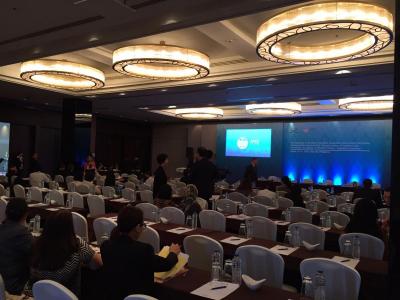With developments in global trade agreements and improvements in technology, international shipments of commodities have played increasingly crucial roles in a country’s economy. However, the United States has experienced millions of dollars in rejections at port due to the limited capacity of receiving nations to conduct accurate sanitary and phyto-sanitary (SPS) tests of food commodities.
The United States Department of Agriculture’s Foreign Agricultural Service (FAS) addressed this matter by providing funding to training initiatives under the Asia-Pacific Economic Cooperation (APEC) Laboratory Capacity Building Program. The program, which is implemented under the APEC Food Safety Cooperation Forum (FSCF), trains food specialists from APEC member countries on SPS testing to reduce false rejections and improve the overall capacities in the area of food safety testing. FAS, as part of a coalition of supporters, provided funding from FY 2011 to 2014 and commissioned DevTech Systems, to evaluate its participation in the program.
DevTech conducted a range of data collection activities, including reviews of training curricula, assessments of activities in online training websites, and face-to-face interviews with food safety professionals from APEC member countries. DevTech’s assessment of online activity provided to-the-day information on hit counts, page visits, online training downloads, and other indicators of utilization of APEC web-based resources among food safety professionals in member countries.
Through the evaluation, DevTech highlighted the creation of a community of practice among food safety specialists as a result of the program. The training provided by the APEC initiative established a global network among industry professionals that significantly contributed to post-project sustainability. The outcome was also cost-effective, as the community was established virtually using web-based communications.
Through the network, members have been able to exchange ideas, experiences, techniques, and best practices in food safety testing. DevTech identified additional improvements in stakeholder coordination to further improve program outcomes, but the organic development of a food testing community of practice established an environment of collaboration and learning that will greatly contribute to the sustainability of the program’s objectives.








